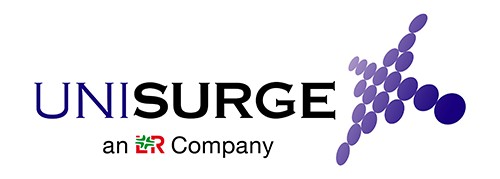Organisation
This statement applies to Unisurge International Limited (referred to in this statement as ‘the Organisation’). The information included in the statement refers to the financial year. June 2025 – June 2026
Organisational structure
Place of business and work
Head office located at Newmarket, Suffolk UK,
Function: Main offices/planning/finance/customer service/contracts/procurement/HR/Quality assurance. Logistics/ warehousing / assembly/ production.
Castleford facility
Warehousing/ research and development/ Lab testing for compliance/ logistics:
The core of the Business is controlled through a board of Directors.
Farboud, Jahangir Director, chairmen and Chief Executive+ 75% PSC
Farboud, Amir, Director Chief Executive,
Farboud Azizeh director and company secretary
Farboud Arash director
Wilson, Stuart Director, Finance.
Organisation is a supplier of customer procedure packs, dressing packs, medical disposable, theatre packs for health care professionals. Organisation supplies single use items in both sterile and non-sterile form. Organisation can sterilise at both our Castleford and Newmarket sites. The business is not seasonal and is steady all year round, supplying to both private and public sector organisations as well as other suppliers and distributors. Organisation supplies outside the UK to the same types of markets, although this is small part of our business currently. The main part of the business is supplying custom procedure packs into the NHS.
Our employed labour is focused entirely in the UK, at times our employees may be required to visit other countries for limited time for trade shows or meeting potential or existing suppliers. To affirm this is not permanent place of work but occasional visits of short time frames under 7 days to meet the ever-changing needs of the business.
Definitions
The Organisation considers that modern slavery encompasses:
- Human trafficking
- Forced work, through mental or physical threat
- Being owned or controlled by an employer through mental or physical abuse of the threat of abuse
- Being dehumanised, treated as a commodity, or being bought or sold as property.
- Being physically constrained or to have restriction placed on freedom of movement.
Commitment
The Organisation acknowledges its responsibilities in relation to tackling modern slavery and commits to complying with the provisions in the Modern Slavery Act 2015. The Organisation understands that this requires an ongoing review of both its internal practices in relation to its labour force and, additionally, its supply chains.
The Organisation ensures all employees receive Modern Slavery Specific annual training and capacity building through the Smartlog on line training portal. The Organisation does not enter into business with any other organisation, in the United Kingdom or abroad, which knowingly supports or is found to involve itself in slavery, servitude and forced or compulsory labour.
No labour provided to the Organisation in the pursuance of the provision of its own services is obtained by means of slavery or human trafficking. The Organisation strictly adheres to the minimum standards required in relation to its responsibilities under relevant employment legislation in the Uk and in many cases exceeds those minimums in relation to its employees.
Supply chains
Potential exposure
Steps
Key performance indicators
- Names and ages of all workers.
- Copies of birth certificates.
- Employment contracts
- Timesheets.
- Payroll records, including wage slips and overtime wage records.
- Health and safety records
- Environmental records
